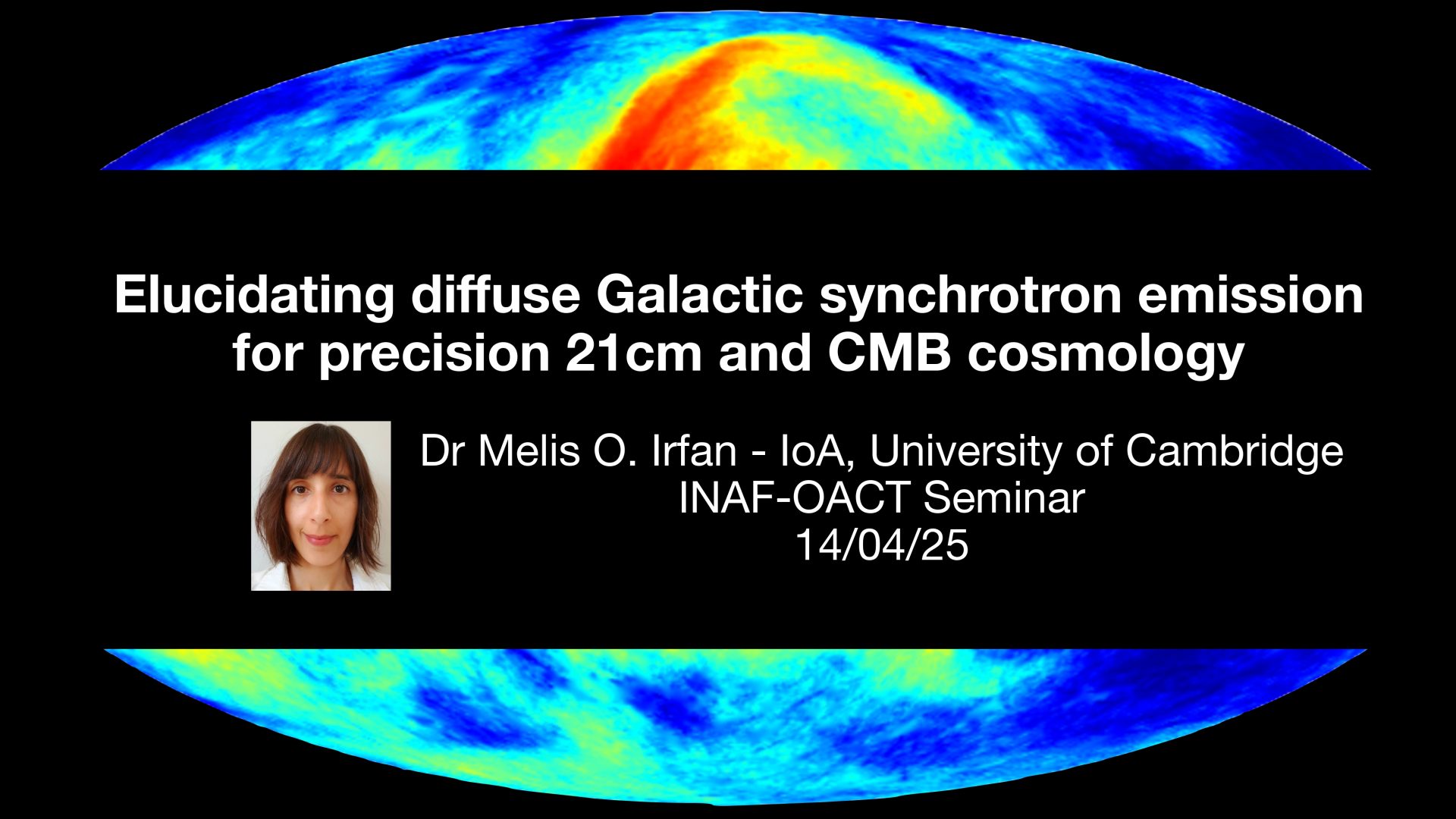
- Questo evento è passato.
Elucidating diffuse Galactic synchrotron emission for precision 21cm and CMB cosmology

Recording: https://www.oact.inaf.it/seminars/
DATE: Monday, April 14, 11:00 a.m.
ORGANIZER: INAF-OACT
LOCATION: AULA OVEST (INAF-OACT) + remote
Link for the remote audience:
https://meet.google.com/wvf-uwxo-oyj
SPEAKER: Dr. Melis O. Irfan (IoA, University of Cambridge)
ABSTRACT:
The next generation of Cosmic Microwave Background experiments are poised to probe the inflationary period of the Universe through the measurement of primordial B-modes, whilst 21cm experiments are observing the reionization history of the early Universe and formation of Large-Scale Structure through the mapping of neutral hydrogen. These two complementary fields span the radio to microwave frequency regimes and share a pivotal data reduction task: foreground component separation.
Diffuse Galactic synchrotron emission is the dominant foreground for arcmin/degree scale cosmological surveys operating across MHz frequencies in intensity, and at all frequencies under 60 GHz in polarised intensity. In this talk I will present measurements of the synchrotron spectral index and curvature between 73 MHz and 1 GHz through the combined use of pilot MeerKLASS, Haslam, Maipu/MU and LWA data. I will discuss the advances that can be made to component separation algorithms thanks to more sophisticated foreground emission modelling and will present a spatially complex, all-sky model of the synchrotron spectral index formed using convolutional neural networks trained on sets of both high- and low-resolution empirical data. Such advances will, and already are, expanding our understanding of the spatial and spectral form of this complex emission; ameliorating component separation for both CMB and 21cm intensity mapping experiments.
A few rules:
— before joining, make sure you are using your institutional inaf.it account if you have one (otherwise we will grant you permission to join)
— please do not forget to mute your microphone and switch off your webcam when access the virtual room
— for questions leave a message in the chat, the answers at the end of the webinar
— the seminar will be recorded, so if you are interested in it, please contact us to get the link to the registration.